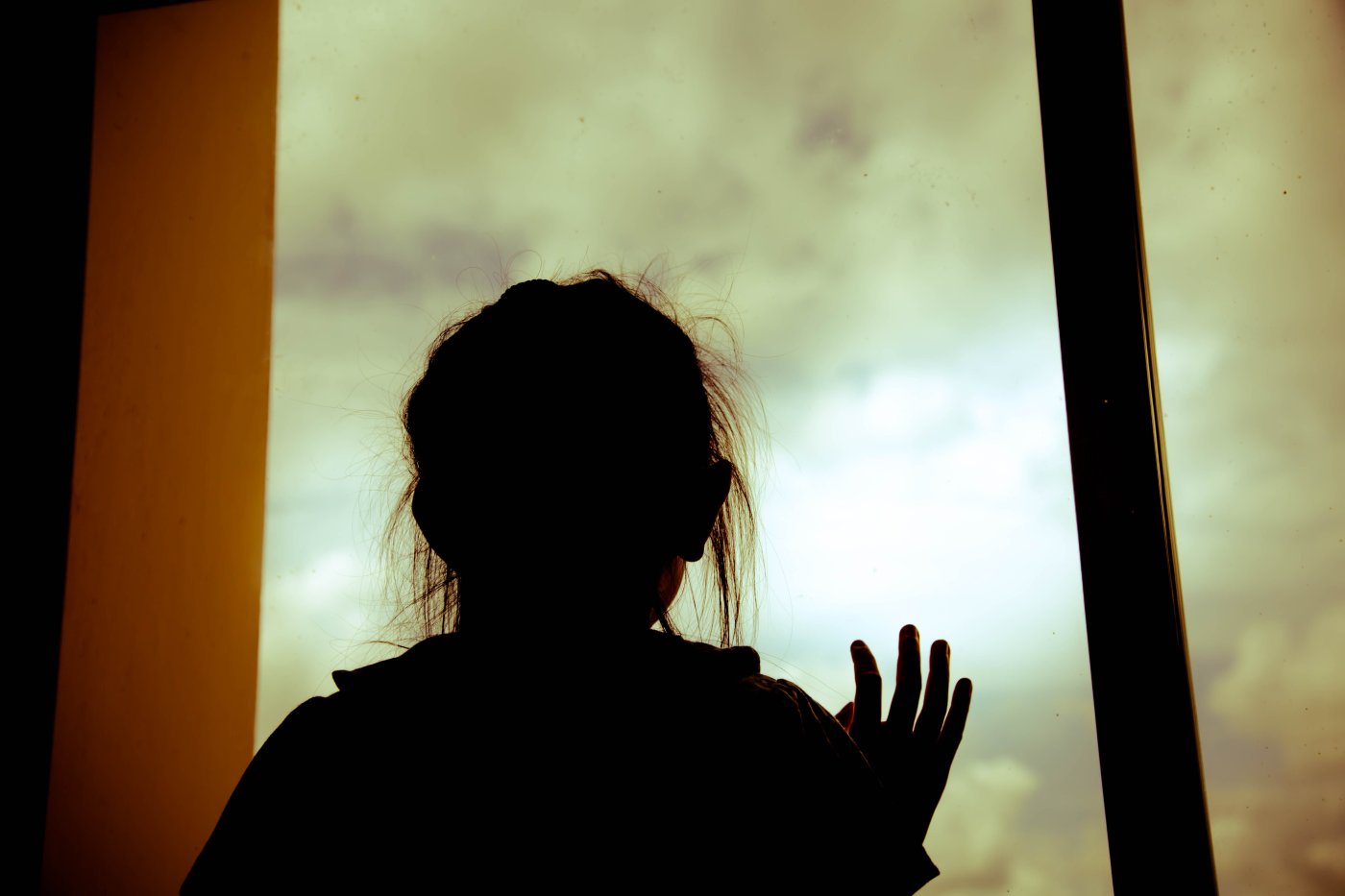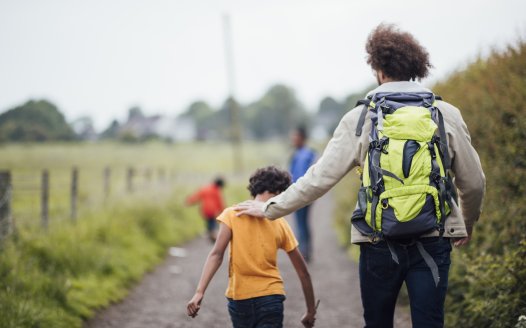Fundamentalists are still being given too much of a free pass on child abuse
Posted: Wed, 8th Sep 2021 by Richard Scorer
The IICSA inquiry's latest report on child abuse in religious organisations and settings provides welcome evidence of significant problems – but is still too light on much-needed solutions, says Richard Scorer.
The report by the Independent Inquiry into Child Sexual Abuse (IICSA) into child protection in religious organisations and settings was published last Thursday, and gained widespread publicity.
IICSA's investigation – looking at child protection in minority religions such as Judaism, Islam and the Jehovah's Witnesses – is one of very few such investigations worldwide. Similar issues were examined by the Australian Royal Commission into institutional abuse, but whether due to political sensitivity or other reasons, child abuse in minority religions has tended to escape close examination. So the very fact that this investigation took place at all is important; hopefully it will be the beginning of a long overdue process of scrutiny.
What should we make of IICSA's report? I represented seven individuals and organisations in this part of the inquiry, all of them working on behalf of victims and survivors. Inevitably they have a range of views about the report, and the following is my personal view.
A very welcome feature of the report is its analysis of the problem of unregistered schools, which have become a haven for the physical and sexual abuse of children, and the legal loopholes which enable them to continue to operate. I wrote about this issue during the inquiry hearings. Even when Ofsted investigates, it lacks the necessary powers to close illegal schools. Many of these schools are religious – of the religious ones about half are Islamic, a quarter Jewish and a quarter Christian. Around 250,000 children receive 'supplementary schooling' or out of school provision from faith organisations. Most of these are provided by fundamentalist religious groups. The lack of regulation and enforcement in this area is a scandal and IICSA's report has helped to highlight this – it will hopefully be an important step towards legal change.
Another welcome feature of the report is its systematic analysis – at least in general terms – of the barriers facing victims and survivors of abuse in religious settings – barriers both to disclosure by victims, and to getting the organisations themselves to take action. These issues – victim blaming, shame and honour; approaches to discussions of sex and sexuality; the use of religious texts and beliefs; patriarchy; abuse of power by religious leaders; resistance to external agencies; a focus on reputational protection at the expense of children; and an instinct to self-police – have rarely been enumerated before, in such a comprehensive way, in a public document.
Last Thursday the media sat up and took notice. This is very important. These issues have led to what I described as a "catastrophic" failure of safeguarding of children, one which cannot be allowed to continue.
That said, IICSA could and should have done more to investigate the extent of that failure, particularly in fundamentalist religious settings. IICSA's reluctance to probe further caused particular anger amongst victims and survivors of abuse in the Jehovah's Witnesses, as my client Lloyd Evans explained last month.
IICSA's rationale for its refusal to "get the data" appears to have been that this was a thematic investigation, and that there was no justification for treating different religious groups differently in terms of the extent of disclosure demanded of them. If so this is misconceived. Religious groups vary in their levels of openness, their willingness to acknowledge the problem of sexual abuse, their willingness to engage with secular society and assimilate secular expertise into their internal safeguarding procedures, and their attitudes to women, sex education, the autonomy of children and human rights generally.
Quakers and liberal Jews approach these issues differently from Jehovah's Witnesses, ultra-Orthodox Jews or fundamentalist Muslims. As we saw in the hearings, some groups like the Baptist Union have made serious and sustained efforts to improve safeguarding; others deny that child abuse happens at all in their settings. And whilst all religious groups have succumbed to the tendency to conceal abuse, groups differ in the prevalence of abuse and the extent to which they are prepared to take active and organised steps to conceal it. The Jehovah's Witnesses have long been accused of organised concealment, and given that backdrop the inquiry needed to probe further – something it was unwilling to do.
My concern is that underlying this may be a reluctance to single out fundamentalist religious groups. If so, this is wrong. In a free society, people have a right to be Jehovah's Witnesses, and that right should always be protected. But we also need to be open and honest about how religious fundamentalism creates the ideal conditions for child abuse and cover up. Pragna Patel of Southall Black Sisters, another of my clients in the inquiry, made that point powerfully in her evidence. There can be no tiptoeing around this. When it comes to child protection, religious fundamentalism is a serious problem; we should not pretend otherwise.
A linked problem with IICSA's report is that, although it is effective in highlighting, in general terms, the barriers to disclosure, and the deep-seated cultural problems in religious settings, it seems at times to shy away from spelling out the implications for particular religious groups. Yehudis Goldsobel, the founder and CEO of Migdal Emunah, an organisation which works with Jewish survivors and one of my clients in this investigation, has spoken powerfully of the problem of 'disguised compliance': in other words where organisations appear to adopt safeguarding policies but in practice act in a way which is designed to obstruct or undermine them.
Whilst highlighting this problem in general terms, the report then pulls its punches. The report notes that the Union of Hebrew Congregations, the umbrella group for ultra-Orthodox Judaism, has only recently – in June 2021 – adopted a safeguarding policy. But it says nothing about the obvious risk of disguised compliance in this instance.
The report notes that the Jehovah's Witnesses have adopted a safeguarding policy which (the Christian Congregation of Jehovah's Witnesses claims) means that allegations will be reported to the police. (This claim is contradicted by a careful reading of CCJW's own evidence to the inquiry). But the report makes no observation as to whether those policies might also be a form of disguised compliance – when the real life, first hand experiences of survivors, and their advocates like Lloyd Evans who gave evidence to IICSA, would suggest exactly that.
And then, in its recommendations, the report states that all religious organisations should adopt a safeguarding policy – again without saying anything about the obvious and real risk of disguised compliance. Victims and survivors may feel that IICSA is happier to talk about barriers in the abstract than to name and shame the worst culprits.
Perhaps the biggest issue I have with this report, however, is that after five years and numerous investigative reports and other publications from IICSA we still have no real sense as to how it intends to address the problems it has identified. Its reports are a long and well evidenced litany of institutional cover up and failure – and thanks to IICSA we know vastly more about abuse in religious settings than we did in 2015. But what everyone wants to know now is: where do we go from here?
IICSA's position is that it will present its main recommendations in its final report next year. I accept that logically, definitive recommendations should come after all of the investigative work is complete. But by this stage of the inquiry one might have expected a sense of the direction of travel. In particular, is IICSA intending to rely on voluntarism and goodwill from religious organisations to address these problems, or has it concluded that they can only be addressed by statutory legislation? And if so, what sort of legislation might it have in mind?
The lack of clarity on that makes it difficult to make sense of where some of IICSA's observations in this report fit into any wider framework. Quite rightly, for example, the report contains some damning comments about the Jehovah's Witnesses' 'two witness rule' – the rule that in the absence of a confession of abuse, two witnesses are required to prove the allegation, something almost never possible in abuse cases. It is crystal clear that IICSA thinks that the rule serves to protect perpetrators.
So what does IICSA, a statutory inquiry empowered to make recommendations, think should happen now? Is the inquiry recommending that CCJW scraps the rule? It appears so, but nothing along these lines is included in the report's recommendations. But in any case, the Jehovah's Witnesses are a fundamentalist religious cult who interpret scripture literally, which is why they have the two witness rule in the first place. CCJW isn't going to change the two witness rule of its own volition, and a report which fails to acknowledge that is simply not facing reality. Does IICSA believe that the state can or should intervene legislatively to force CCJW to change its internal procedures? The report doesn't say, or give us any hint as to the inquiry's thinking. So the section of the report which identifies the two witness rule as profoundly harmful to children simply hangs there with no hint as to what, if anything, parliament should do about it. Five years into this inquiry, this feels unsatisfactory.
As I've argued many times before, the only effective answer to the problems identified in this report is new law, particularly in the form of well-designed mandatory reporting. Self-policing has failed. In its place we need a completely new legal framework, and to address serious weaknesses in regulatory agencies. Anything less will leave yet more generations of children at risk of sexual and physical abuse.
IICSA can still recommend that, and I hope it will. But this report – good and path breaking though much of it is – is better at identifying problems than pointing us towards to those much needed solutions. And victims and survivors may feel that for all the powerful analysis of failings and worse, religion – particularly of the fundamentalist variety – is still getting too much of a free pass.
Image: Namning/Shutterstock.com.
While you're here
Our news and opinion content is an important part of our campaigns work. Many articles involve a lot of research by our campaigns team. If you value this output, please consider supporting us today.








